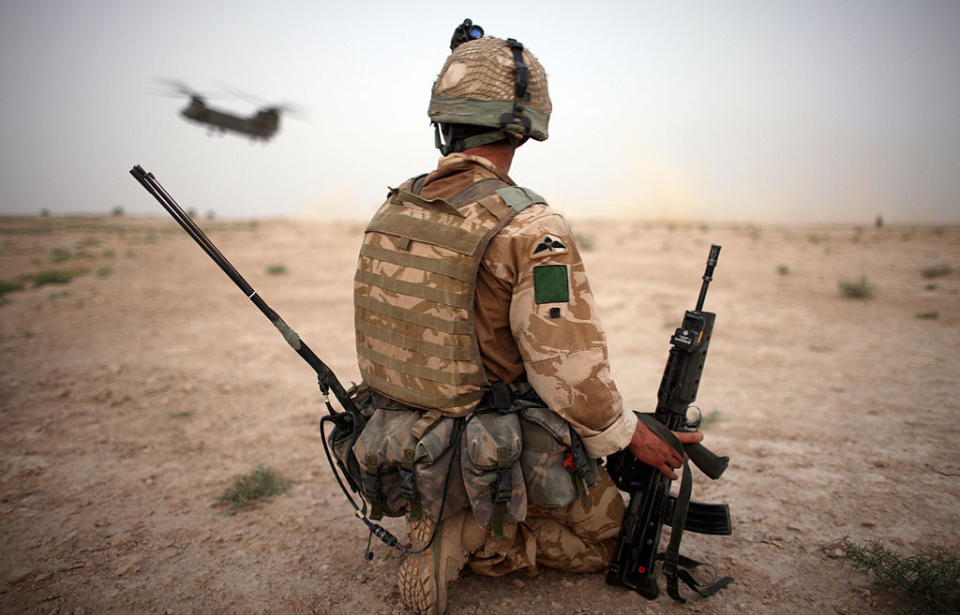The Victoria Cross is the United Kingdom’s highest military honor and one of the most esteemed recognitions for gallantry in combat. However many recipients are never aware of the fact they’ve received it, as they often lose their lives while performing the actions that earned them it. Such was the case with Corp. Bryan Budd, who selflessly gave his life leading a one-man charge against heavy Taliban fire.
Scheduled to return home in five days, one might assume Budd would only have eyes for returning to his family. However, his actions ensured others could go home in his stead, for it seemed the 10-year veteran couldn’t help but live up to the reputation of the British Parachute Regiment and fight until the very end.
This is the kind of story that makes you lament the fallen, but, as the saying goes, also remain thankful that such men lived.
Bryan Budd was a professional soldier

Born in Belfast, Northern Ireland in 1977, Bryan Budd knew early on that he wanted to be a soldier. In 1996, he enlisted with the Parachute Regiment, so he could be part of the elite who’d lead the way into war.
Not content with just being a PARA, he took the road less traveled and passed the necessary tests to become a member of the 16 Air Assault Brigade’s Pathfinder Platoon. Designed to conduct reconnaissance deep behind enemy lines, the Pathfinders led the way into combat, allowing Budd to conduct operations in the former Yugoslavia, Sierra Leone, Macedonia, Iraq and, finally, Afghanistan.
Increased Taliban activity in Helmand province
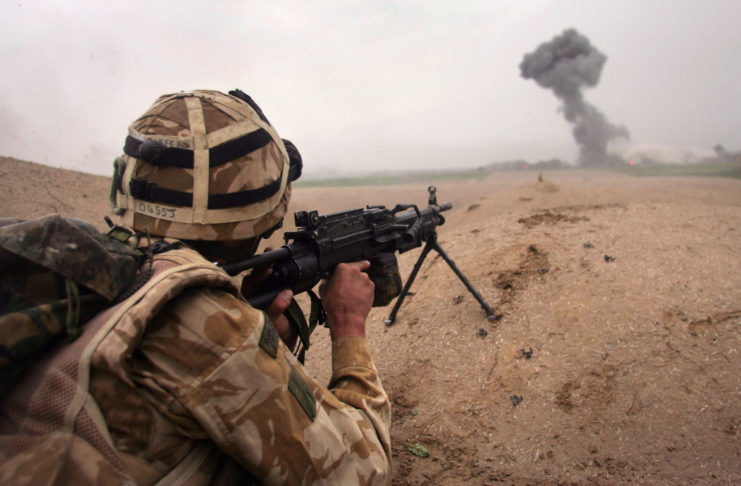
In 2006, Bryan Budd joined the 3rd Battalion, Parachute Regiment (3 PARA) as part of a British task force headed for Helmand province, Afghanistan. The region was the scene of some of the heaviest fighting of the war at this time, and the town of Sangin was the epicenter of it all.
The Taliban had grown increasingly accustomed to Western military intervention and adapted tactics to make themselves a more aggressive and resilient opponent. While previous engagements saw them engage from afar, the insurgents were now unafraid to take the fight up closer and compete for the occupation of rural Afghanistan.
For Budd’s final engagement, this meant meters away in a field head-high full of corn.
His Victoria Cross citation actually references two incidents, one coming on July 27, 2006. When his section became engaged with multiple Taliban militants firing from a rooftop, several British PARAs were injured and in need of evacuation. Realizing the suppressive fire made that impossible, he stood up, exposed to heavy fire, and charged the building.
Budd’s assault caused the Taliban to flee across an open field, where they were given an education on British marksmanship. The PARA’s action allowed his colleagues to be evacuated, and were be the first of two inexplicably gallant actions.
Bryan Budd was just five days from home
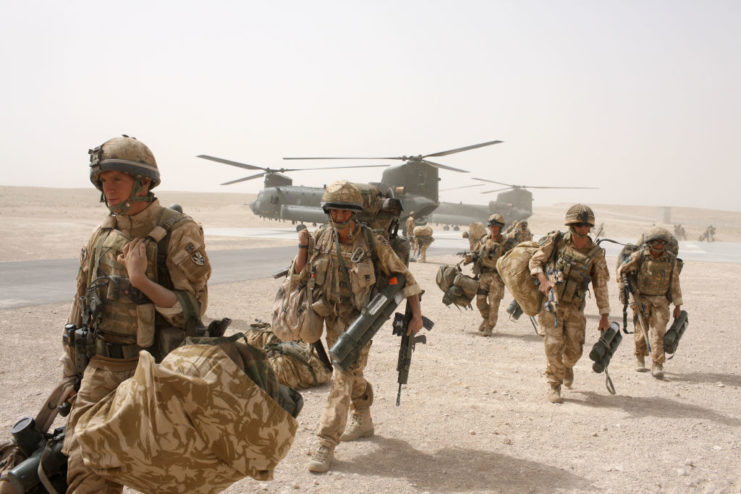
While deployment dates can often change at the last minute, it’s reported that Bryan Budd was scheduled to return home on August 25, 2006. On August 20, he was in Sangin, where his unit was defending a remote outpost. Due to its location, it was targeted almost daily by the Taliban and required a stiff defense, which included frequent patrols around the perimeter.
On one such patrol, Budd was leading his men through thick vegetation, which consisted of corn the height of a human. Despite the limited visibility, he noticed a large number of Taliban insurgents approximately 30 meters ahead. Attempting to maintain an element of surprise, Budd initiated a flanking maneuver intended to take out the enemy.
However, when the Taliban noticed the mobile patrol nearby, a vicious firefight ensued.
Taliban insurgents versus the British Parachute Regiment
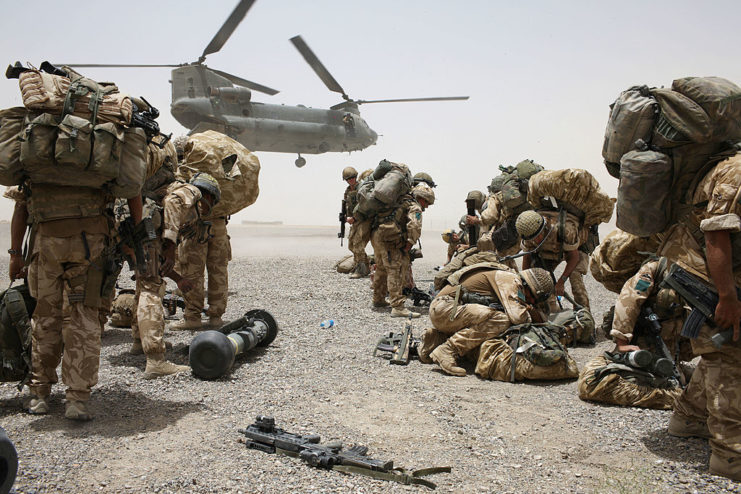
With three of his men wounded, Bryan Budd, once again, recognized the need to regain the initiative and pressed forward with the attack – alone. He rushed through the corn and assaulted the enemy. Despite being wounded in the firefight, he continued the assault, giving his men the cover needed to reorganize.
As a result of this assault, the Taliban militants were silenced and the wounded able to evacuate.
However, there was no sign of Budd as his unit withdrew. He was initially listed as missing in action (MIA) while a quick reaction force assembled to search for him. As the reactionary forces pushed through the vegetation, air power beating back the Taliban, Budd’s body was discovered lying in the field next to three dead insurgents.
Bryan Budd met a tragic end
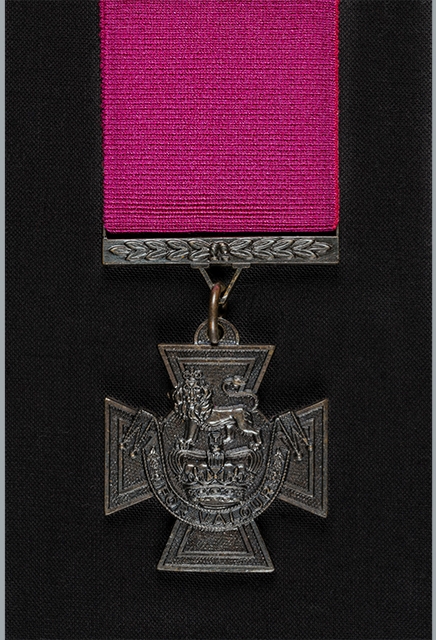
For his actions on August 20, 2006 and a few days prior, Bryan Budd was awarded the Victoria Cross. He was one of less than 20 to receive the honor since the end of the Second World War. A subsequent examination might have proven that the fatal shot came from a 5.56 mm NATO weapon, which indicated friendly fire. However, that only occurred because he saw fit to close in and destroy the enemy.
On not one, but two occasions, Budd deemed it advisable to launch a counterattack and gift violence to the enemy, rather than receive it. An unexpected counterattack disrupts enemy momentum, but often at a great cost to those who pursue it. Budd will rest in the hall of history that recognizes him as a warrior who understood that battle is fought one moment at a time, with little disregard for when you might be going home.
More from us: James Ashworth: The Victoria Cross Recipient Who Gave His Life to Take Out An Enemy Sniper
If it’s indeed the case that Bryan Budd would have returned home with his family in just five days, then history owes him the recognition for conducting such a feat and sacrificing his life for his comrades.
